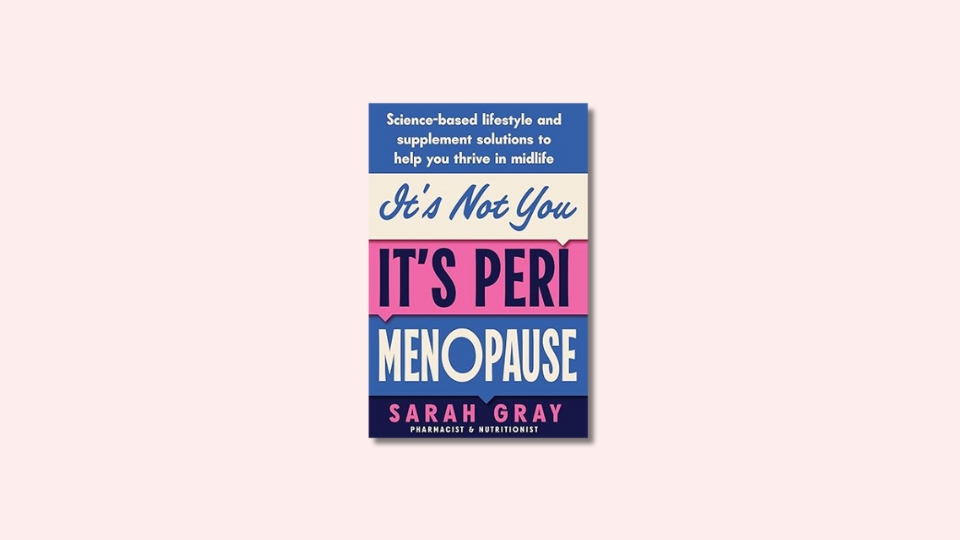Perimenopause: How to advocate for yourself with your doctor
Guest Writer | September 29, 2025

There’s no doubt your social media feed is inundated with messages about perimenopause. A term rarely spoken about five or 10 years ago, it now seems to be everyday vernacular.
A natural transition, perimenopause leaves many women feeling dismissed or misunderstood. While its great that social media is shining a light on this major life stage, many women still face difficulties when it comes to accessing quality care and treatment.
As a pharmacist, nutritionist and certified menopause practitioner, who works closely with women in perimenopause, I see the same frustration time and again. Women are being told they are “too busy”, “just stressed”, or “anxious” when their symptoms are clearly affecting quality of life.
You understand your body better than anyone else – that’s why learning how to advocate for yourself at the GP is essential when it comes to thriving in midlife.
Below are some tips to help you feel confident, prepared, and heard when you walk into your doctor’s consultation room.
Get familiar with the basics
One of my biggest beliefs when it comes to health is that knowledge equals power. Understanding the basics of perimenopause can help you better identify potential symptoms, and appreciate the changes your body is managing during this transition.
Symptoms can occur from as early as your mid-30s through to your early 40s and may include:
- Hot flushes and night sweats
- Sleep disturbances
- Anxiety, irritability or low mood
- Irregular or heavy periods
- Changes in skin, hair, and weight distribution
- Vaginal dryness.
While there are many more potential symptoms, having these common ones in mind may help you start to connect the dots of possible perimenopause symptoms.
Use a symptoms checklist
A visit to the GP is less than 30 minutes in length, which can make it challenging to share a full picture of your experience.
One of your most effective advocacy tools is keeping a clear record of symptoms. Note when they occur, their severity, and how they impact your daily life. Keep a diary and make note of how symptoms change over time, and be ready to share this summary with your GP at the appointment.
Patterns like these make it much easier for a GP to recognise perimenopause rather than viewing symptoms in isolation.
Prepare before the appointment
To get the most out of your appointment, preparation is key. Think about these points to help guide the discussion:
- Your main concerns: For example, “My mood changes are affecting my relationships.”
- Your top questions: For example, “Could these symptoms be perimenopause?” or “What treatment options are available?”
- Your goals for the appointment: For example, “I’d like to discuss whether HRT or non-hormonal options might suit me.”
Having this list not only keeps you focused but also signals to your GP that you are organised and curious about your health.

Learn more in It's Not You, It's Perimenopause by Sarah Gray.
Consider your approach
To better help the GP devise a plan for you, share what’s on your mind. It’s vital they understand your concerns, and how this is impacting your life.
You could use phrases such as:
- “I believe I may be in perimenopause because of the cluster of symptoms I have.”
- “I’d like to explore medical treatment options, but I’m a bit hesitant to ask from what I’ve seen on social media.”
- “This is significantly affecting my quality of life and I really need some help.”
Your doctor is there to support you, and you should feel like a team – there’s no point in only telling them part of the story.
Remember that you have choices
Just like all partnerships, sometimes there is a misfit or misalignment. It’s no different when it comes to your health.
If you leave an appointment feeling unheard or dissatisfied, you’re entitled to seek another GP’s perspective. Do some research and seek a doctor who specialises in women’s health or menopause. The Australiasian Menopause Society has a list of practitioners who have a special interest in the menopause transition.
Be your own best advocate
You understand your body more than any other person, and with that, you should be your own loudest voice, and ensure your GP understands your full picture.
In my experience, when clients openly share their feelings, and how their symptoms are impacting their lives, it’s hard not to piece together a full picture, and offer comprehensive support. Please never feel like you have to suffer in silence.
In a nutshell
Perimenopause doesn’t have to be a confusing or lonely experience. By equipping yourself with knowledge, tracking your symptoms, and communicating clearly, you can get the care you deserve.
As a pharmacist and nutritionist, my message to women is this: you are the expert in your own body. A GP is your partner in care, and they can truly help guide and support you on this challenging journey.
When you advocate for yourself — firmly, respectfully, and persistently — you pave the way to better health not just for yourself, but for all women walking this path.
Sponsored

This article was written by Sarah Gray, a qualified and registered pharmacist and nutritionist, with a passion to help people live their healthiest and happiest lives. She is also the author of It’s Not You, It’s Perimenopause.
Learn more at thenutritionpharmacist.com
We have a request
SHE DEFINED’s journalism is independent and we’re committed to elevating the voices of women by putting them front-and-centre in our stories and giving them a platform to speak up.
Quality journalism and editorial content takes time, money and resources to create, which is why your support matters. We don’t have a paywall or exclusive subscriptions because we believe in keeping our stories open to everyone.
Help support our mission by making a financial contribution today.






